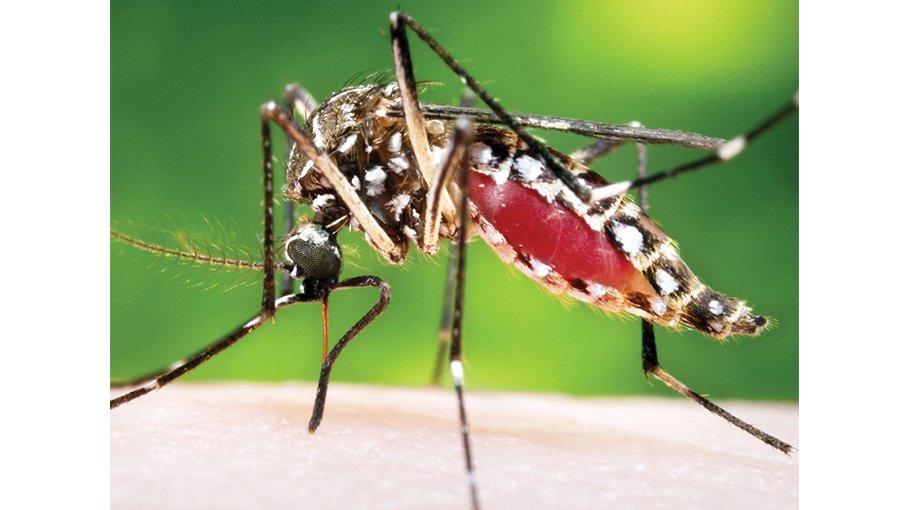Poor water management to blame for dengue outbreak

Health experts today said poor water management in Dhaka city is largely responsible for dengue outbreak even insignificant amount of rainfall in the capital city spread the mosquito-borne disease.
"Dhaka city is facing extensive water-logging whenever it witnesses rainfall . . .we are observing water-logging problems have created in the capital city both summer and monsoon seasons due to poor drainage system ," Entomology department chief of National Institute of Preventive and Social Medicine (NIPSOM) Professor Dr Md Golam Sharower told BSS on Thursday.
He said Dhaka city is witnessing waterlogging problem as poor drainage system is slowing receding of water.
Referring to the recent summer rainfall, the entomologist said many areas of Dhaka city have witnessed waterlogging because "Our water management system is worsening gradually blaming lack of awareness of city dwellers as well as relevant organizations have failed to address the long-standing problems in Dhaka city."
Dr Sharower suggested the two city corporations should scale up their efforts to improve drainage systems for receding rainfall water at the quickest time.
City dwellers are found with creating unhealthy environments as they are throwing artificial containers rampant, which are massively responsible for poor drainage system alongside these artificial containers are the breeding sources of Aedes mosquito.
The enologist urged the city corporation and other relevant organization to take prompt measures to create mass awareness among the people for combating the dengue disease.
"Community engagement is very crucial to prevent dengue disease... All relevant organizations should work in a coordinated manner to prevent the dengue disease," Dr M Mushtaq Hussain, adviser of the Institute of Epidemiology, Disease Control and Research (IEDCR), told
BSS. He laid emphasis on taking integrated efforts to tackle dengue disease and said that it is impossible for a single institution to handle the menace.
Dr Mushtaq urged the city corporations to create an adequate number of volunteers to manage the dengue situation properly.
Kabirul Bashar, professor of Department of Zoology of Jahangirnagar University, said, "Generally, Aedes mosquito is found in residential areas...breeding sources of Aedes mosquito are inside and outside the houses."
Analyzing life cycle of Aedes mosquito, he termed it as a domestic species and said its management system will be different from other species of mosquito.
"So, it is very important to understand reproductive nature and life cycle of Aedes mosquito to take effective measures for prevention of Dengue outbreak," he added.
Bashar, also an eminent entomologist, said dengue has emerged as a massive health burden in the country as authorities are handling the mosquito-borne disease following traditional methods.
"We need to recruit health workers, who will be assigned to oversee specific a number of houses in particular areas in Dhaka city throughout the year," Bashar said, adding a year-long monitoring system must be introduced to destroy potential breeding sources of Aedes mosquito.
"We have to take preventive steps particularly destroying breeding sources of Aedes mosquito to stop spread of dengue disease," Director of The Institute of Epidemiology, Disease Control and Research (IEDCR) Prof Dr Tahmina Shirin said.
City dwellers must be cautious about stagnant water which is the main source of breeding of Aedes mosquito, she said, adding that even a small quantity of water can grow Aedes mosquitoes leading to the spread of such deadly disease.
The IEDCR director said even if a small quantity of water is left stagnant in any broken pot, tyre, vas or container inside and outside homes and offices, it can be breeding ground for Aedes mosquitoes.
She urged the city dwellers to remain careful about sources of stagnant water as most of the people in the country have utter negligence to keep their surroundings neat and clean.
The total number of cases rose to 2,545 between January 1 and May 15 this year while 32 deaths from dengue disease were reported during the same period, according to the daily statement of the Directorate General of Health Services (DGHS).
Last year, the country recorded 1,705 dengue-related deaths and a total of 3,21,179 dengue cases.



